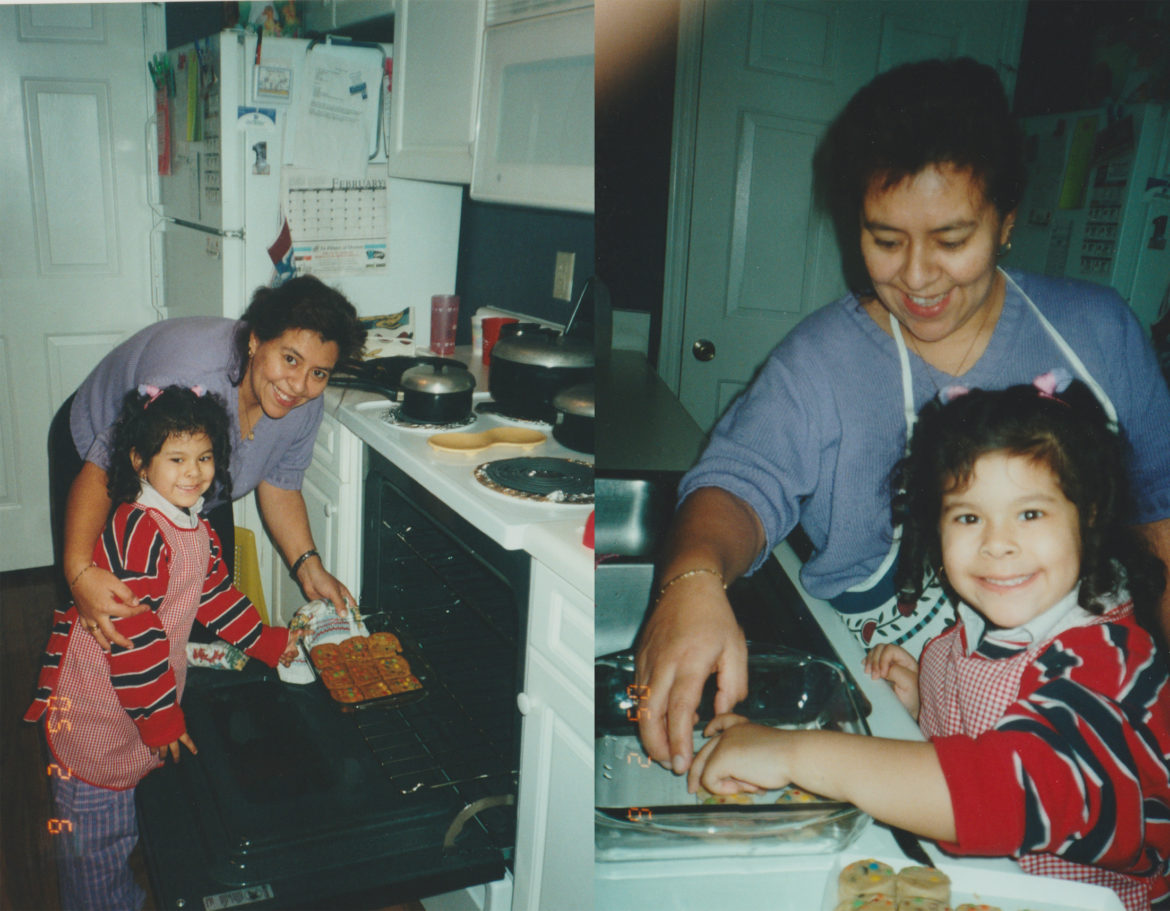Viewpoints Editor Valeria Garcia-Pozo bakes cookies with her mother, Charo Pozo-Hurtado, in 2005. Garcia-Pozo cherishes the memories she has with her mother, who had a long-lasting impact on her life. Photos courtesy of Valeria Garcia-Pozo.
Viewpoints Editor Valeria Garcia-Pozo reflects on the death of her mother and the effect it had on her.
For the majority of my life, my mother could do no wrong in my eyes. She was the perfect example of what a woman should be like — she was kind to everyone she met, she was compassionate, and she was hilarious.
Whenever I had a question, my mother had an answer. Her sage words of advice seemed to magically hold true in every situation. I lived by her warnings:
“Cuando no escuchas a mamá, malas cosas pasan.”
She was fiercely protective, interested and caring — always involved, always majorly present in my life.
My mother died when I was 15 years old. She’d been diagnosed with breast cancer when I was 10. For five years, she was able to lead a pretty normal lifestyle, filling all the roles that any other mother would lead.
And suddenly, I lost her.
My mother made everything feel normal. She established a sense of stability for our entire household.
Her death came unexpectedly, without warning. I found myself in a hospital on a Sunday, and the next day, she had passed away.
I didn’t want anything to change. I wanted to do my homework and go about my schoolwork like normal, but I couldn’t focus.
Instead, I took a mental health day. I left assignments incomplete. These little changes were terrifying.
They meant things were different. They meant there was a reason for things to be incomplete, for things to be unstable, abnormal. I hated this.
She’d always kept going. I thought I could surely do the same.
Members of our church began to offer my family rides. A different person from my parents’ office made us a hot meal every day for months. My classmates gave me their sincerest condolences.
I had never needed this before.
I will never forget the kindness I have been shown. I will always appreciate it to the ends of the earth. It was an outpouring of love for my mother that overflowed onto us.
But, my family was such an independent, functional unit that the idea we needed help from anybody terrified me. Were we always going to be that way? Would we ever be normal or okay?
Little by little, my family began to get our lives back together again.
We cleaned my mother’s clothes out of my parents’ closet and did away with her tables, her notebooks, her planners
with scheduled activities she never got to complete.
My father started going to therapy. He began to write poetry again. He reconnected with old friends.
I began to turn to other people for answers when I needed advice. I allowed family, friends, my father and my teachers to collectively fill the role that was missing from my life without my mother, all doing so in their own ways.
My 14-year-old brother, Daniel, became closer to me, and closer to my father. He came out of his shell.
I became sensitive to certain things that had never affected me before. If I found out one of my friends had a parent in the hospital, I felt that I owed them the comfort, solace and reassurance that I received from others the night my
mother passed away.
It also helped me understand the fear of pity and shame that comes with the response to a personal tragedy. Accepting help from others, emotional or otherwise, is more difficult than I realized.
Now, every time I offer my emotional support to someone, I know a part of them fears seeming vulnerable or incapable.
But, I also know it is possible to heal.
